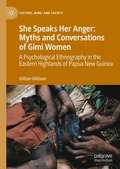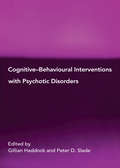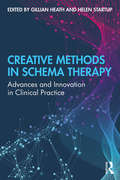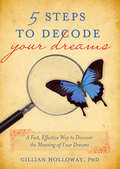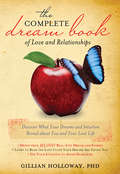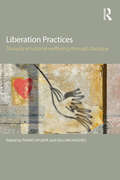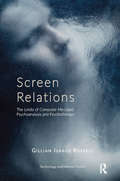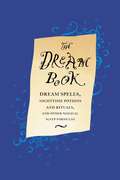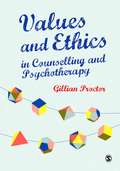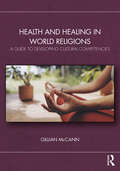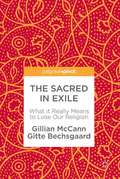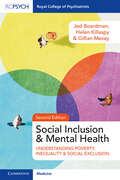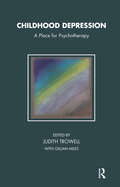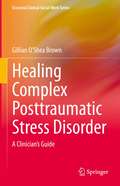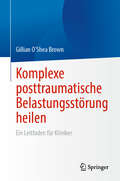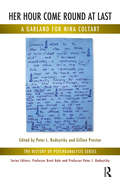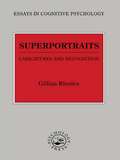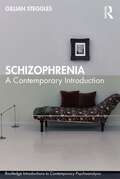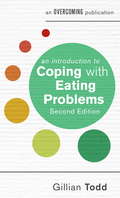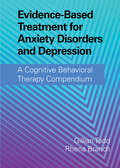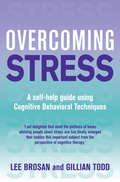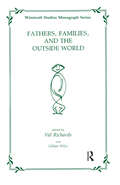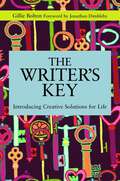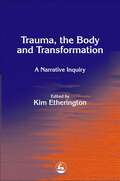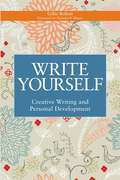- Table View
- List View
She Speaks Her Anger: A Psychological Ethnography in the Eastern Highlands of Papua New Guinea (Culture, Mind, and Society)
by Gillian GillisonTaking a novel approach that adapts Freud’s theory of the Primal Crime, this book examines a wealth of ethnographic data on the Gimi of the Eastern Highlands of Papua New Guinea, focusing on women’s lives, myths, and rituals. Women’s and men’s separate myths and rites may be ‘read’ as a cycle of blame about which sex caused the ills of human existence and is still at fault. However, the author demonstrates that in public rites of exchange in which both sexes participate, men appropriate and subvert women’s usages as a ritual strategy to ‘undo’ motherhood and confiscate children at puberty. In doing so, she reveals how Gimi women both rebel against the male-dominated social order and express understanding of why they also acquiesce. The result of decades of fieldwork, writing and reflection, this book offers an analysis of Gimi women’s complex understanding of their situation and presents a nuanced picture of women in a society dominated by men. It represents an important contribution to New Guinea ethnography that will appeal to students and scholars of psychoanalysis, gender studies, and cultural, social and psychoanalytic anthropology.
Cognitive-Behavioural Interventions with Psychotic Disorders
by Gillian Haddock Peter D. SladeTraditionally, people with psychotic symptoms have been treated with anti-psychotic or neuroleptic drugs. While this approach is beneficial to a number of people, there are many for whom it is problematic. Recent recognition of these problems has led to the development of effective complementary treatments of a specifically psychological nature. In Cognitive Behavioural Interventions with Psychotic Disorders leading researchers and practitioners in this area provide a comprehensive overview for all those undergoing related training in psychology and psychiatry, as well as nursing and social work. The book provides a general background to cognitive treatment, and also discusses specific uses of the therapy in treating those who have hallucinations, as well as those with delusions and schizophrenia. The contributors also suggest how cognitive behavioural approaches can be integrated with other strategies such as pharmacological methods, or in the context of the family.
Creative Methods in Schema Therapy: Advances and Innovation in Clinical Practice
by Gillian HeathCreative Methods in Schema Therapy captures current trends and developments in Schema Therapy in rich clinical detail, with a vividness that inspires and equips the reader to integrate these new ways of working directly into their practice. It begins with creative adaptations to assessment and formulation, including the integration of body methods to promote engagement and to bring about early emotional change. Other chapters introduce innovative methods to lift a formulation off the page and it goes on to bring to life new developments across all aspects of the ST change repertoire, including limited reparenting, imagery, trauma processing, chair work, the therapy relationship, empathic confrontation and endings. For the specialist, there are chapters on working with forensic modes, eating disorders and couples work. Finally, the book includes chapters on the integration of key principles and techniques from Cognitive Behavioural Therapy, Emotion Focused Therapy and Compassionate Mind work into a core schema model. The book will appeal not only to full-fledged schema therapists, but also to junior therapists and therapists from other modalities who are willing to enhance their ways of working.
5 Steps to Decode your Dreams
by Gillian HollowayBeloved by dream experts and readers, this is a "practical, comprehensive guide" that is "especially useful for people who are baffled by the bizarre content of their dreams. " (editor of Dreamtime and Dreamwork). It's a short, quick, and easy method for dream interpretation that anyone can learn, based on a five-step method for identifying the revealing elements in any dream and using them to positive effect in daily life. Examples demonstrate how people have used the insights derived from their dreams to avoid danger, solve problems, and let go of negative patterns.
The Complete Dream Book of Love and Relationships: Discover What Your Dreams and Intuition Reveal about You and Your Love Life
by Gillian HollowayWhat do your dreams really mean. . . for your love life? The Complete Dream Book of Love and Relationships is a groundbreaking guidebook for using what's already in your head to understand your heart. Respected dream analyst and intuition expert Gillian Holloway uses the interpretations of 30,000 actual dreams from people just like you to help you access the wisdom in your dreams so you can make the most of your relationships. Discover why your dreams contain some of the best clues to real love; How to interpret the deeper relationship signals in dreams that seem to have nothing to do with love; The easy technique for recognizing the core meaning of any dream; How to reconnect with your intuition and truth-detector signals; How to recognize the phenomena of precognitive dreams and love at first sight; Why listening to your intuition and gut instinct can be a powerful tool in understanding what you really want-and need.
Liberation Practices: Towards Emotional Wellbeing Through Dialogue
by Gillian Hughes Taiwo AfuapeLiberation psychology is an approach that aims to understand wellbeing within the context of relationships of power and oppression, and the sociopolitical structure in which these relationships exist. Liberation Practices: Towards Emotional Wellbeing Through Dialogue explores how wellbeing can be enhanced through dialogue which challenges oppressive social, relational and cultural conditions and which can lead to individual and collective liberation. Taiwo Afuape and Gillian Hughes have brought together a variety of contributors, from a range of mental health professions and related disciplines, working in different settings, with diverse client groups. Liberation Practices is a product of multiple dialogues about liberation practices, and how this connects to personal and professional life experience. Contributors offer an overview of liberation theories and approaches, and through dialogue they examine liberatory practices to enhance emotional wellbeing, drawing on examples from a range of creative and innovative projects in the UK and USA. This book clearly outlines what liberation practices might look like, in the context of the historical development of liberation theory, and the current political and cultural context of working in the mental health and psychology field. Liberation Practices will have a broad readership, spanning clinical psychology, psychotherapy and social work.
Screen Relations: The Limits of Computer-Mediated Psychoanalysis and Psychotherapy (The\library Of Technology And Mental Health Ser.)
by Gillian Isaacs RussellIncreased worldwide mobility and easy access to technology means that the use of technological mediation for treatment is being adopted rapidly and uncritically by psychoanalysts and psychoanalytic psychotherapists. Despite claims of functional equivalence between mediated and co-present treatments, there is scant research evidence to advance these assertions. Can an effective therapeutic process occur without physical co-presence? What happens to screen-bound treatment when, as a patient said, there is no potential to "kiss or kick?" Our most intimate relationships, including that of analyst and patient, rely on a significant implicit non-verbal component carrying equal or possibly more weight than the explicit verbal component. How is this finely-nuanced interchange affected by technologically-mediated communication? This book draws on the fields of neuroscience, communication studies, infant observation, cognitive science and human/computer interaction to explore these questions. It finds common ground where these disparate disciplines intersect with psychoanalysis in their definitions of a sense of presence, upon which the sense of self and the experience of the other depends.
The Dream Book: Dream Spells, Nighttime Potions and Rituals, and Other Magical Sleep Formulas
by Gillian KempFrom the author of THE GOOD SPELL BOOK and THE FORTUNE-TELLING BOOK, this is an easy-to-use, beautiful gift book that will unlock the secrets of your dreams. The reader will discover why we dream and learn to uncover the magical meaning behind our dreams. The author explains how to keep a dream notebook, create dream spells and magical sleep formulas, how to tell the future and how to make wishes come true.
Values & Ethics in Counselling and Psychotherapy
by Gillian M ProctorThis book offers an introduction to values and ethics in counselling and psychotherapy, helping you to develop the ethical awareness needed throughout the counselling process. The book covers: - Context and emergence of ethics in counselling - Exercises to explore personal and professional values - Tools to develop ethical mindfulness - Differences between therapeutic models - Relational ethics - Ethical dilemmas and issues - Practice issues including confidentiality, boundaries and autonomy versus beneficence. Using in-depth case studies of counselling students, the author demonstrates the constant relevance of values and ethics to counselling and psychotherapy, equipping trainees with the tools to successfully navigate values and ethics in their professional practice.
Health and Healing in World Religions: A Guide to Developing Cultural Competencies
by Gillian McCannHealth and Healing in World Religions is a comprehensive introduction to the field that explores the research that links spirituality and well-being, including work with addiction and trauma.Each chapter includes an introduction to and summary of each tradition, questions at the conclusion, and boxes that highlight key ideas from the chapter using an example and interviews with medical professionals and other healers. Health and Healing in World Religions looks at cutting edge interfaces between spirituality and health such as mindfulness practices, addiction programmes, indigenous approaches to healing, traditional Chinese medicine, yoga and Ayurveda, and more. The text provides an overview of the research and practice all in one place and includes extensive bibliographies and resource guides for ease of reference.Health and Healing in World Religions is derived from over 20 years of teaching and research in health and healing and comes from an in-depth understanding of religion and spirituality. It is a vital guide to understanding cultural competency in the healing professions and the need to understand the cultural and spiritual traditions of clients.
The Sacred in Exile: What It Really Means To Lose Our Religion
by Gillian Mccann Gitte BechsgaardThis book addresses the fact that, for the first time in history, a large segment of the population in the western world is living without any form of religious belief. While a number of writers have examined the implications of this shift, none have approached the phenomenon from the perspective of religious studies. The authors examine what has been lost from the point of view of sociology, psychology, and philosophy of religion. The book sits at the nexus of a number of important debates including: the role of religion in public life, the connection between religion and physical and psychological well-being, and the implications of the loss of ritual in terms of maintaining communities.
Social Inclusion and Mental Health: Understanding Poverty, Inequality and Social Exclusion
by Jed Boardman Helen Killaspy Gillian MezeyPeople with mental health conditions are among the most socially excluded groups in society. Mental health conditions are influenced by the social environment, which in turn shapes our social and cultural responses to the people who experience them. Much of what mental health practitioners do is 'essentially social' and the effects of their interventions are hampered by the marginalised status of many of the people that they see. This book documents the ways in which people with mental health conditions are excluded from participating in society and offers some pointers as to how this may be reversed. It highlights the need to reduce mental health inequalities and to consider the importance of material inequalities and social injustices faced by people experiencing mental ill-health. Whilst the challenges are considerable and the solutions wide-ranging, mental health practitioners can play a significant role in facilitating the social inclusion of those with mental health conditions.
Childhood Depression: A Place for Psychotherapy (Tavistock Clinic Series)
by Gillian MilesThis title is based on the results of a project based at the Tavistock Clinic in London which set out to explore whether children and young people aged nine years to fifteen years suffering from depression could be helped using brief focused psychodynamic psychotherapy together with parent work and family therapy. There were also centres in Athens, Greece and Helsinki, Finland, and in this way the clinicians had sufficient subjects from which to compare the interventions and check for any possible cultural differences in the results. Most of the children and young people studied showed a noticeable improvement. The book contains chapters by the clinicians involved describing their work as well as a section containing the scientific papers that emerged from the project. It is hoped that this may encourage the use of similar approaches to working in the field, especially in these days when there is such a demand for psychological therapies.
Healing Complex Posttraumatic Stress Disorder: A Clinician's Guide (Essential Clinical Social Work Series)
by Gillian O’Shea BrownThis book is a clinician's guide to understanding, diagnosing, treating, and healing complex posttraumatic stress disorder (C-PTSD). C-PTSD, a diagnostic entity to be included in ICD-11 in 2022, denotes a severe form of posttraumatic stress disorder (PTSD) and is the result of prolonged and repeated interpersonal trauma. The author provides guidance on healing complex trauma through phase-oriented, multimodal, and skill-focused treatment approaches, with a core emphasis on symptom relief and functional improvement. Readers will gain familiarity with the integrative healing techniques and modalities that are currently being utilized as evidence-based treatments, including innovative multi-sensory treatments for trauma, in addition to learning more about posttraumatic growth and resilience. Each chapter of this guide navigates readers through the complicated field of treating and healing complex trauma, including how to work with clients also impacted by the shared collective trauma of COVID-19, and is illustrated by case examples. Topics explored include:Complex layered traumaDissociationTrauma and the bodyThe power of beliefAn overview of psychotherapy modalities for the treatment of complex traumaEgo state work and connecting with the inner childTurning wounds into wisdom: resilience and posttraumatic growthVicarious trauma and professional self-care for the trauma clinicianIt is important for clinicians to be aware of contemporary trends in treating C-PTSD. Healing Complex Posttraumatic Stress Disorder is an essential text for mental health practitioners, clinical social workers, and other clinicians; academics; and graduate students, in addition to other professionals and students interested in C-PTSD. It is an attractive resource for an international clinical audience as we work together to heal, affirm, and unburden clients following this time of shared collective trauma.
Komplexe posttraumatische Belastungsstörung heilen: Ein Leitfaden für Kliniker
by Gillian O’Shea BrownDieses Buch ist ein Leitfaden für Kliniker zum Verständnis, zur Diagnose, Behandlung und Heilung der komplexen posttraumatischen Belastungsstörung (C-PTSD). Die komplexe posttraumatische Belastungsstörung (C-PTSD), eine diagnostische Entität, die 2022 in die ICD-11 aufgenommen werden soll, bezeichnet eine schwere Form der posttraumatischen Belastungsstörung (PTBS) und ist das Ergebnis eines lang anhaltenden und wiederholten zwischenmenschlichen Traumas. Der Autor bietet eine Anleitung zur Heilung komplexer Traumata durch phasenorientierte, multimodale und kompetenzorientierte Behandlungsansätze, wobei der Schwerpunkt auf der Linderung von Symptomen und der Verbesserung von Funktionen liegt. Die Leser werden mit den integrativen Heilungstechniken und -modalitäten vertraut gemacht, die derzeit als evidenzbasierte Behandlungen eingesetzt werden, einschließlich innovativer multisensorischer Behandlungen für Traumata, und sie erfahren mehr über posttraumatisches Wachstum und Resilienz. Jedes Kapitel dieses Leitfadens führt den Leser durch das komplizierte Feld der Behandlung und Heilung komplexer Traumata, einschließlich der Arbeit mit Klienten, die ebenfalls von dem gemeinsamen kollektiven Trauma von COVID-19 betroffen sind, und wird durch Fallbeispiele illustriert. Zu den untersuchten Themen gehören: · Komplexes, vielschichtiges Trauma · Dissoziation · Trauma und der Körper · Die Macht des Glaubens · Ein Überblick über die Modalitäten der Psychotherapie bei der Behandlung komplexer Traumata · Ego-State-Arbeit und Verbindung mit dem inneren Kind · Wunden in Weisheit verwandeln: Resilienz und posttraumatisches Wachstum · Vikarielles Trauma und professionelle Selbstfürsorge für Traumaforscher Für Kliniker ist es wichtig, die aktuellen Trends in der Behandlung von C-PTSD zu kennen. Healing Complex Posttraumatic Stress Disorder (Heilung komplexer posttraumatischer Belastungsstörungen) ist ein unverzichtbarer Text für Psychotherapeuten, klinische Sozialarbeiter und andere Kliniker, Akademiker und Doktoranden sowie für andere Fachleute und Studenten, die sich für C-PTSD interessieren. Es ist eine attraktive Ressource für ein internationales klinisches Publikum, da wir gemeinsam daran arbeiten, Klienten nach dieser Zeit des gemeinsamen kollektiven Traumas zu heilen, zu bestätigen und zu entlasten. Beschreibung der Reihe : Die Essential Clinical Social Work Series bietet modernstes theoretisches und klinisches Wissen für klinische Sozialarbeiter und andere im Bereich der psychischen Gesundheit tätige Personen.
Her Hour Come Round at Last: A Garland for Nina Coltart (The History of Psychoanalysis Series)
by Peter L. Rudnytsky Gillian PrestonThis title is a celebration of the life of Nina Coltart, who had a career in medicine and psychoanalysis and was author of bestselling titles in psychotherapy The Baby and the Bathwater and How to Survive as a Psychotherapist. The book contains a large number of contributions by specialists in the field including Michael Brearley, Susan Budd and Anthony Molino. The book offers a long-overdue tribute to Nina Coltart (1927-1997), who was a leading figure in the Independent Group of the British Psychoanalytical Society and, indeed, one of the greatest psychoanalysts of the twentieth century. In addition to providing a comprehensive assessment of Coltart's life and work by patients, supervisees, friends, family members, and readers, the editors have compiled all of her hitherto unpublished or uncollected writings, making this book a capstone of her legacy to psychoanalysis.
Superportraits: Caricatures and Recognition (Essays in Cognitive Psychology)
by Gillian RhodesAs Nixon's unpopularity increased during Watergate, his nose and jowls grew to impossible proportions in published caricatures. Yet the caricatures remained instantly recognizable. Caricatures can even be superportraits, with the paradoxical quality of being more like the face than the face itself.How can we recognize such distorted images? Do caricatures derive their power from some special property of a face recognition system or from some more general property of recognition systems? What kind of mental representations and recognition processes make caricatures so effective? What can the power of caricatures tell us about recognition?In seeking to answer these questions, the author assembles clues from a variety of sources: the invention and development of caricatures by artists, the exploitation of extreme signals in animal communication systems, and studies of how humans, other animals and connectionist recognition systems respond to caricatures.Several conclusions emerge. The power of caricatures is ubiquitous. Caricatures can be superportraits for humans, other animals and computer recognition systems. They are effective for a variety of stimuli, not just faces. They are effective whether objects are mentally represented as deviations from a norm or average member of the class, or as absolute feature values on a set of dimensions. Exaggeration of crucial norm-deviation features, distinctiveness, and resemblance to caricatured memory traces are all potential sources of the power of caricature.Superportraits will be of interest to students of cognitive psychology, perception, the visual arts and animal behavior.
Schizophrenia: A Contemporary Introduction (Routledge Introductions to Contemporary Psychoanalysis)
by Gillian StegglesSchizophrenia: A Contemporary Introduction provides a vital overview of psychoanalytic work with patients dealing with schizophrenia, highlighting the many benefits of this approach and introducing key methods for mental health practitioners.This concise introductory volume starts by offering a brief historical introduction to how psychoanalysts, from Freud onwards, have approached schizophrenia and the methods they have used to alleviate the distress it causes its sufferers. Gillian Steggles illustrates how the developing relationship between patient and analyst can positively impact the patient’s mental functioning, leading to an improvement in their overall health and the ability to regain independence and self-reliance. She introduces theoretical psychoanalytic approaches, such as the Psychodynamic Pentapointed Cognitive Construct (PPCC) model, as a means of offering guidance to analysts dealing with schizophrenic analysands.This book will be of interest to practicing and trainee analysts, as well as those interested in the history of schizophrenia and its continued impact.
An Introduction to Coping with Eating Problems, 2nd Edition (An Introduction to Coping series)
by Gillian ToddEating problems, including anorexia nervosa and bulimia nervosa, can have a devastating impact on sufferers as well as their friends and family. This self-help guide is written by a consultant psychotherapist with extensive experience of treating eating disorders and will help you identify an eating disorder and develop a toolkit of strategies to help you take steps towards overcoming the disorder. It also includes a chapter offering useful guidance for family members.This updated second edition will help you:· Understand how eating disorders develop and what keeps them going· Find the motivation to change · Change how you eat· Challenge negative thinkingThe Introduction to Coping series offers valuable guidance for those seeking help for emotional or psychological problems such as depression and anxiety. Each book gives useful background information and suggests techniques to change unhelpful patterns of behaviour and thinking using cognitive behavioural therapy (CBT) techniques. CBT is recommended internationally to treat a wide range of emotional, psychological and physical conditions including eating disorders.
Evidence-Based Treatment for Anxiety Disorders and Depression: A Cognitive Behavioral Therapy Compendium
by Rhena Branch Gillian ToddWritten by internationally recognized experts, this comprehensive CBT clinician's manual provides disorder-specific chapters and accessible pedagogical features. The cutting-edge research, advanced theory, and attention to special adaptations make this an appropriate reference text for qualified CBT practitioners, students in post-graduate CBT courses, and clinical psychology doctorate students. The case examples demonstrate clinical applications of specific interventions and explain how to adapt CBT protocols for a range of diverse populations. It strikes a balance between core, theoretical principles and protocol-based interventions, simulating the experience of private supervision from a top expert in the field.
Overcoming Stress
by Lee Brosan Gillian ToddOvercoming app now available via iTunes and the Google Play Store.'An excellent book filled with practical tips for understanding and managing stress.' Professor David M. Clark, Professor and Chair of Experimental Psychology, University of OxfordMost of us know what it is like to feel stressed - so much so, in fact, that we take it for granted that we are going to feel stressed and assume that there's not much to be done about it. Too much stress can disrupt our lives almost without our realizing it. However there is a tried and tested approach to coping using cognitive behavioural therapy (CBT). In this easy-to-use self-help guide the authors help you to recognize what happens when under stress and how to change how you think, feel and act so that you learn to retain a balanced outlook on life and manage it more effectively too.· Provides a complete CBT self-help course with case studies and step-by-step explanations· Shows how to permanently improve your overall quality of life by changing the ways you respond to stressOvercoming self-help guides use clinically proven techniques to treat long-standing and disabling conditions, both psychological and physical. Many guides in the Overcoming series are recommended under the Reading Well Books on Prescription scheme.Series Editor: Professor Peter Cooper
Fathers, Families and the Outside World (The\winnicott Studies Monograph Ser.)
by Gillian WilceThis is the second monograph to be published under the auspices of Winnicott Studies, the Squiggle Foundation's renowned series of publications on contemporary applications of Winnicott's thought. Like its predecessor, which concentrated on the True and False Self, this volume focuses on a single topic: Winnicott's treatment of fathers. The volume includes a reprint of Winnicott's 1965 paper, "A child psychiatry case illustrating delayed reaction to loss", which is followed by John Forrester's "On holding as a metaphor", which expands and comments on many of the issues which Winnicott raises. John Fielding then provides an insight into Shakespeare's treatment of father-figures; Graham Lee outlines a new approach to the Oedipus complex in the light of Winnicott's insights; and Val Richards concludes with some clinical and theoretical thoughts. Taken together, these papers provide an intriguing composite picture of Winnicottian thought today, on a topic which is of increasing social and cultural interest.
The Writer's Key: Introducing Creative Solutions for Life
by Gillie BoltonThe Writer's Key is a complete beginner's guide to writing for self-reflection and personal development. Creative writing can deepen our understanding of ourselves and our lives. This book unlocks the potential for gaining these insights, widening perspectives, finding new positivity, increasing confidence and reducing stress through writing. It: - introduces creative writing as a very enjoyable process for enabling reflective personal and professional development - provides strategies and inspiration for getting started, continuing despite hesitations and getting the most out of writing - features uplifting accounts of individuals' successful use of the Key for self-exploration and development through creative writing. The Writer's Key assumes no prior writing experience and will inspire and encourage anyone who wants to tell and explore their story, whether they feel trapped by issues at work or home because of loss, trauma or relationships, or simply want to make more of life.
Trauma, the Body and Transformation: A Narrative Inquiry
by Gillie Bolton Kim EtheringtonTrauma suffered during childhood can affect not only a person's emotional and mental health, but also their physical health, even into adulthood. This unique book fills a gap in research in this area, providing personal and theoretical perspectives on trauma and recovery. The contributors tell powerful stories of traumatic childhood events, including bereavement, abuse and evacuation and separation from parents. They document their reactions to trauma whether through illness, disability, addiction, psychosomatic disorders, self-harming behaviours or dissociation. Each author also shows the pathway they have taken towards transforming their bodies to well-being. This will be a valuable resource for those who are dealing with the impact of childhood trauma in their own lives; their families and friends whose lives are also touched; workers in the field of trauma, especially medical practitioners who can sometimes feel helpless when faced with patients whose symptoms they cannot understand or heal; and counsellors, psychotherapists and psychologists. This book will also be of value to researchers interested in narrative research methods.
Write Yourself
by Gillie BoltonWrite Yourself is the ideal introduction to how to facilitate groups and individuals in finding inspiration for their creative personal writing voices. This book explains how and why writing is such an illuminative, healing, and cathartic process, and provides many practical exercises that encourage the exploration of emotions, memories and experiences. Chapters cover the use of writing with a variety of client groups, including those made up of people suffering from depression, anxiety or health problems, and advice is given both on running and participating in successful writing groups. This book will be an invaluable resource for professionals working across the health, social care and caring professions, arts therapists and for everyone interested in the therapeutic qualities of creative writing.
